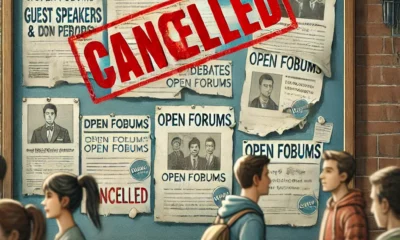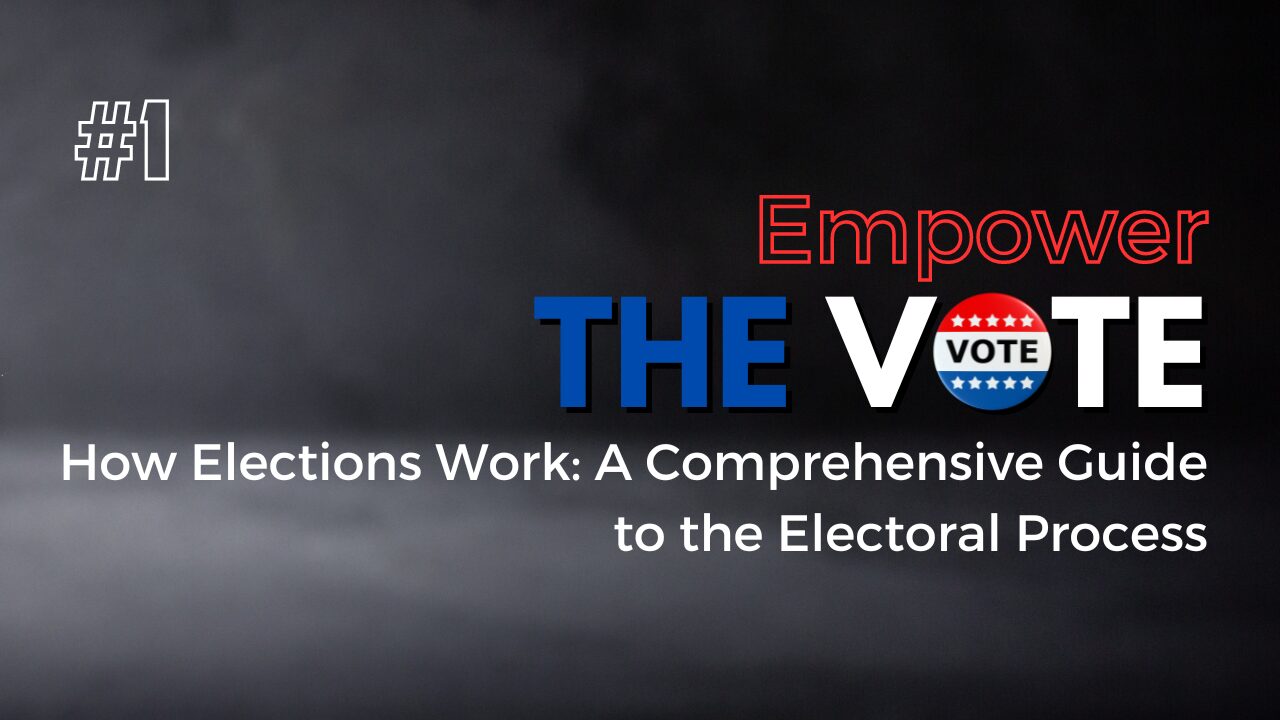
Elections are the cornerstone of any democracy, providing citizens with the power to choose their leaders and influence government policies. Understanding how elections work is crucial for informed participation. This article will explore the different types of elections, the electoral process, the role of the Electoral College, and the importance of voter registration.
Types of Elections
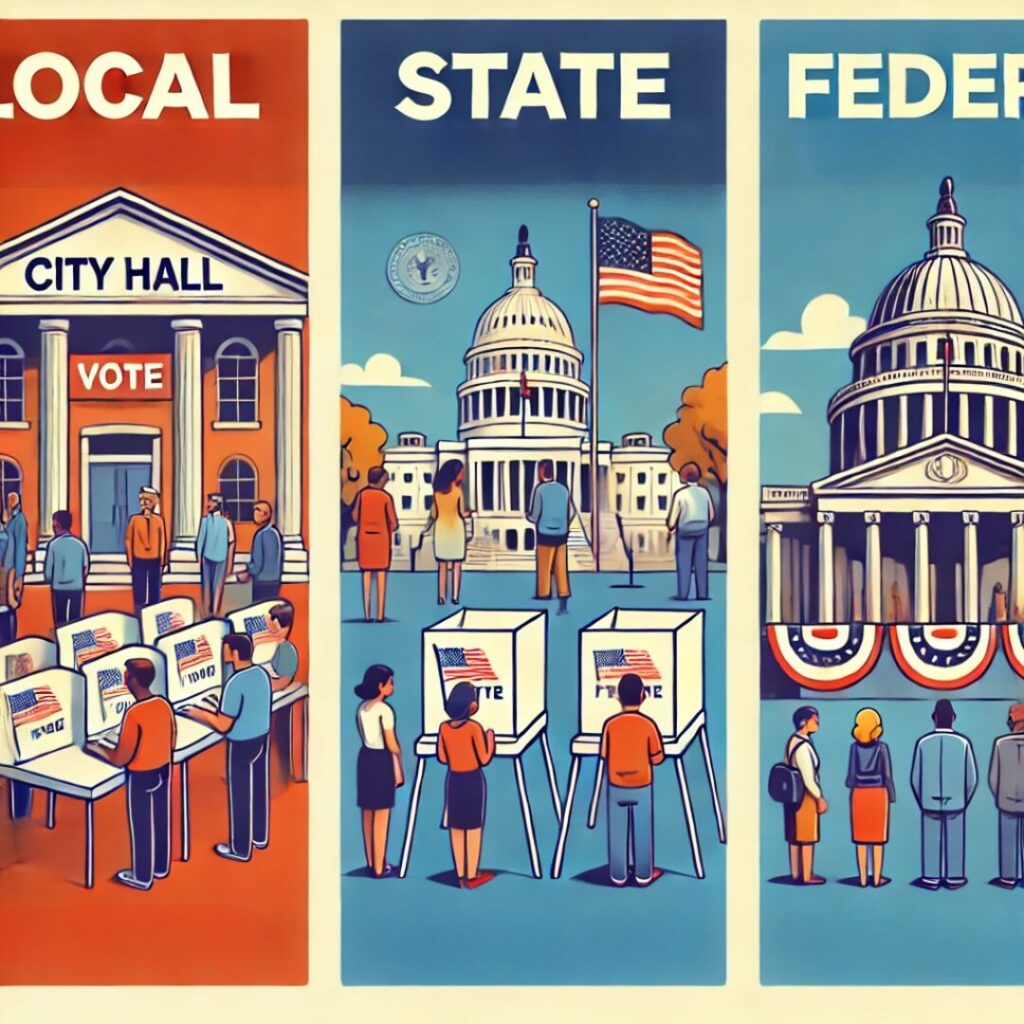
Local Elections
Local elections occur within cities, towns, and counties, electing officials like mayors, city council members, and county commissioners. These elections directly impact daily life, influencing local policies on education, public safety, transportation, and infrastructure. Typically, local elections are nonpartisan, focusing more on candidates’ policies and community involvement than on party affiliation.
State Elections
State elections determine governors, state legislators, and various other state-level officials, including attorneys general and secretaries of state. State elections can significantly impact policies on education, healthcare, and public safety, varying widely from one state to another. These elections also often include referendums and initiatives on specific issues, allowing voters to have a direct say in state laws.
Federal Elections
Federal elections, held every two years, determine the President, members of Congress, and other federal officials. Presidential elections occur every four years, while congressional elections are held biennially. The U.S. Senate elections are staggered, with approximately one-third of seats contested every two years, ensuring continuity. These elections shape national policies and determine the country’s direction on critical issues like foreign policy, defense, and economic strategy.
The Electoral Process
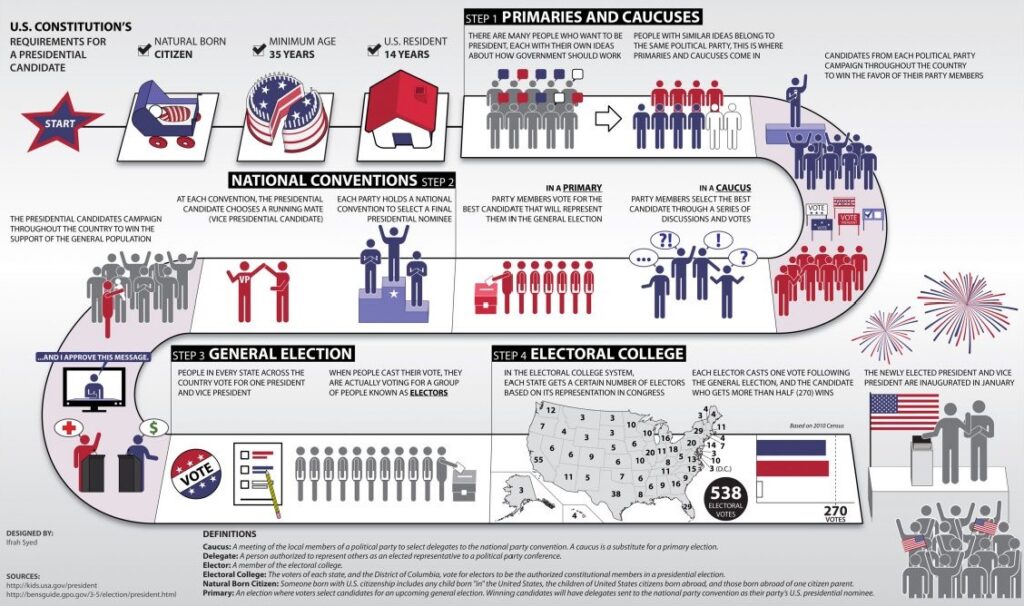
Primaries and Caucuses
The electoral process often begins with primaries and caucuses, where political parties select their candidates for the general election. Primaries are more common and involve voters casting ballots in a process similar to the general election. Caucuses, less common, involve party members gathering to discuss and vote on candidates. Both processes are essential for narrowing the field of candidates.
General Elections
General elections are where voters make their final choice among the candidates presented by various political parties. Held on the first Tuesday after the first Monday in November, general elections determine who will hold office at local, state, and federal levels. Voters may also decide on referendums and initiatives during these elections.
Runoffs
In some states, if no candidate receives a majority of votes in the general election, a runoff election is held between the top two candidates. This ensures that the elected official has broad support among the electorate. Runoffs are common in states with stricter majority requirements, ensuring that the winning candidate represents the majority’s choice.
Vote Counting and the Electoral College
Vote Counting
After polls close, election officials count the votes, often starting with in-person ballots and then moving to mail-in and absentee ballots. The process is meticulous to ensure accuracy, with results often verified by multiple officials. Provisional ballots, used when there are questions about a voter’s eligibility, are verified and counted once the eligibility is confirmed.
The Electoral College
The Electoral College is a unique feature of U.S. presidential elections. Voters do not directly elect the President; instead, they choose electors who pledge to vote for specific candidates. Each state has a set number of electors based on its congressional representation. To win the presidency, a candidate must receive a majority of the electoral votes, currently at least 270 out of 538.
Critics argue that the Electoral College can result in a candidate winning the presidency without winning the popular vote, as seen in the 2000 and 2016 elections. Supporters claim it ensures a broader representation of the states, preventing candidates from focusing solely on populous regions.
Importance of Voter Registration
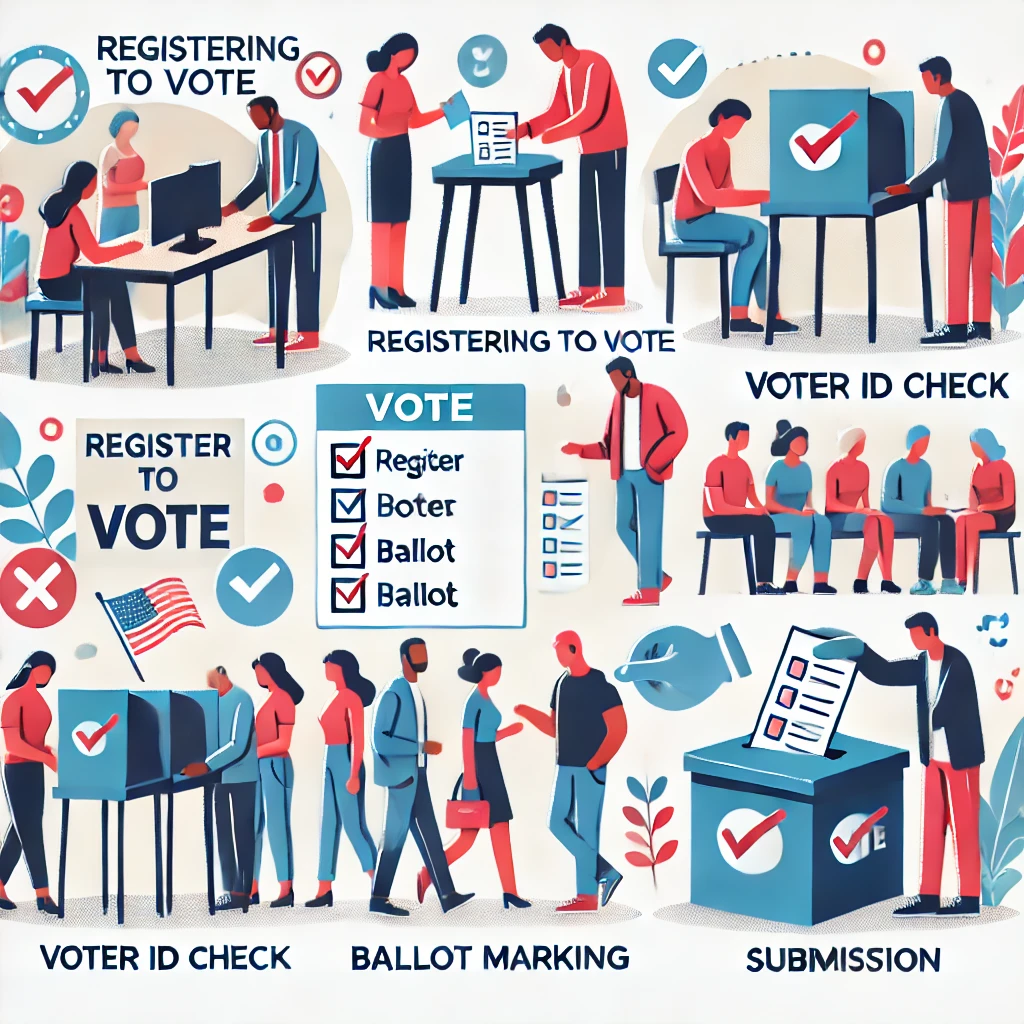
Registering to Vote
Voter registration is a crucial step in the electoral process. Each state has its requirements and deadlines for registration, which can typically be done online, by mail, or in person. Some states offer same-day registration, while others have cut-off dates weeks before the election. Click here for voter registration resources.
Ensuring Participation
Registration ensures that only eligible citizens vote and helps maintain the integrity of the election. It also provides election officials with an accurate record of eligible voters, aiding in the efficient and orderly conduct of elections.
Click Here for the Michigan Voter Information Center which houses useful voting related resources.
Deadlines and Requirements
Understanding the registration deadlines and requirements in your state is essential. Missing the registration deadline means missing the chance to vote in that election. Voters must also update their registration if they move or change their name to ensure they receive the correct ballot.
Conclusion
Understanding the electoral process is vital for effective participation in democracy. From local to federal elections, each vote contributes to shaping policies and leadership. By learning about the different types of elections, the steps involved in the electoral process, and the importance of voter registration, citizens can make informed decisions and exercise their right to vote effectively. This knowledge not only empowers individuals but also strengthens the democratic system as a whole.
Check out CatchMark Community for other community related content.
Brent is the Managing Partner of CatchMark Technologies and a seasoned technologist with over 25 years of experience in IT leadership, cybersecurity, and technical operations. He began his career serving in the U.S. Army, where he worked extensively with electronics—laying the foundation for his lifelong passion for technology and problem-solving. Brent holds a Certified Information Systems Security Professional (CISSP) certification and currently leads CatchMark’s Cybersecurity and Tech Support teams. Known for his strategic thinking and hands-on expertise, he excels in guiding secure, scalable solutions and driving innovation across complex technical environments.
Must See
-


Community
/ 2 days agoHunters and Anglers: Urban Deer Hunting in Whitehall and Montague
WHITEHALL & MONTAGUE, MI — As deer populations continue to rise across West Michigan,...
By Kara Raeth -


Community
/ 2 days agoStay Safe This Summer on Lake Michigan and White Lake
As summer heats up in the White Lake area, more people are heading to...
By Kara Raeth -


History
/ 3 days agoWhite Lake History – Parades Through Time
The Tradition of Parades Parades have been a part of human celebration for thousands...
By Owen Raeth








